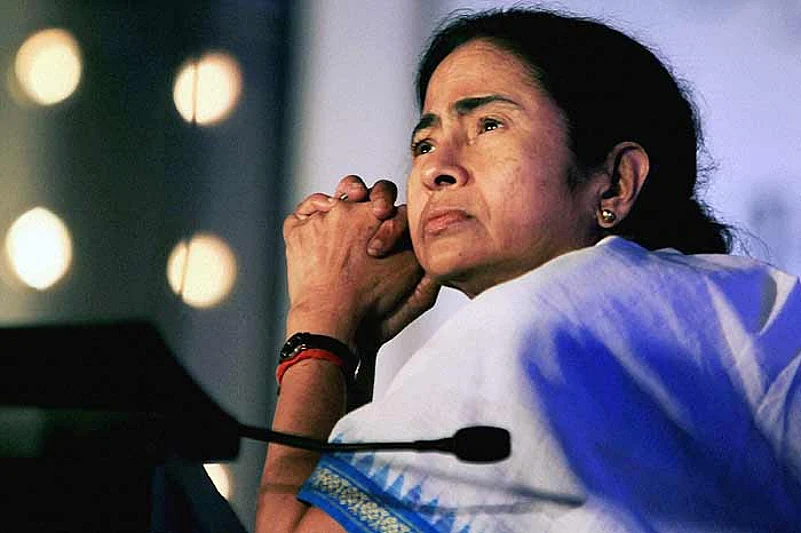In her My Unforgettable Memories, a disparate collection, the one description Mamata Banerjee gives of herself is as a person incapable of lying and dissimulation. She knows the truth can sometimes hurt; but even in those circumstances she is incapable of being economical with the truth. But having said that, she goes on to describe an occasion where, on a foreign visit, she did not have the heart to tell an orthodox vegetarian, when asked, that he had just been served and was eating non-vegetarian food. When the colleague asks why she did not tell him the truth, she says: “I did not want you to go hungry. This is not my kitchen, and I would have been unable to arrange something for you.”
It would take a lot to decode this form of transparency, but two traits stand out: she had decided what was good for the colleague (irrespective of the colleague’s point of view) and was willing to say it openly. Is this the secret to Didi? Her message, as that of Monobina Gupta’s breezy biography Didi, is that she is simply what you see.
She may be mercurial, change her mind, but there is no trace of chicanery and cold calculation in her actions. In some sense her persona is a revolt against two social tendencies. Politically it is a revolt against politics as a form of dissimulation, and the cowardice and complicity it breeds. This is fundamentally what went wrong with the Congress in Bengal. But more endearingly, it is also a revolt against the stylised self-presentation of the enlightened Bengali upper classes. This was the class that supposedly ushered modernity into India by making two moves. First, it created a secular space by imagining daily routines and teleologies in a secular way. Secondly, it imagined religion in an abstract philosophical way: Brahmoism as the revolt against undisciplined polytheism. Neither of these claims corresponds to the empirical reality of Bengal, but are so much part of Bengali self-presentation.
Middle-class Bengali readers will scoff at this, but the most charming aspect of Mamata’s world of memories is that the world she describes is totally and effortlessly enchanted: populated by visions, idols with power, a surfeit of meaning and significance. It is to her credit that she is so unembarrassed by this.
But what is odder is that most of Mamata’s politics seems to be a politics of nostalgia. Both her self-descriptions and Gupta’s biography confirm a long-held suspicion. “Leftism” in Bengal is not an ideology; it is more like a cultural identity, all-pervasive and reluctant to change with the times. Gupta makes the valid point that Mamata’s greatest success was not offering something new: it was occupying the left space the CPI(M) was increasingly beginning to vacate. On this evidence, Mamata will be more left than the left—with a certain valorisation of peasant struggles, no real interest in how wealth is generated, and no serious interest in institutions. It is a curiously odd combination of raw political power intent on holding onto a status quo, and sweetened by a culture drawn largely from the past: an arcadia of Rabindrasangeet and Uttam Kumar. The fight in Bengal seems not to be about a different future, one attuned to large changes; it is still largely about being the custodian of an imagined past. Mamata is a revolutionary who wants to restore the past.
Both books provide a useful political narrative. Mamata is single-minded in her pursuit of Bengal’s identity; she sees little else. Her leftism is driven by a raw sense of injustice: of people being expropriated, of tyranny being exercised. There is a great personal sense of loyalty to Rajiv Gandhi, but barely disguised contempt for the Congress. She obviously has extraordinary courage and persistence. She has mesmerising rhetorical power, and disarms by saying the most unexpected thing. But in a poignant moment she also reveals she was scared of being in a hotel room alone, on her first trip abroad.
Again, in a poignant moment, she describes her Baba recurrently telling her in a dream that he was killed by negligence in a hospital. But it does not translate into a minimal reflection on what ails Bengal. Bengal has a lot of poetry, a lot of politics, but too little of the nuts-and-bolts plumbing that governance requires. If the two books are any guide, don’t expect that to change soon.


























